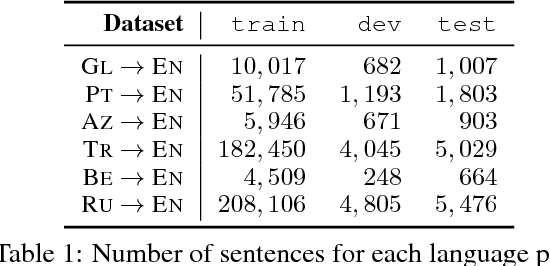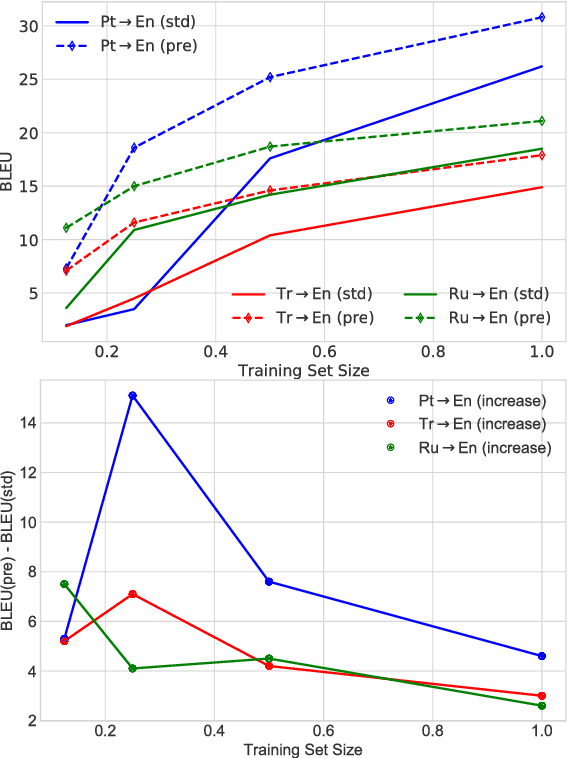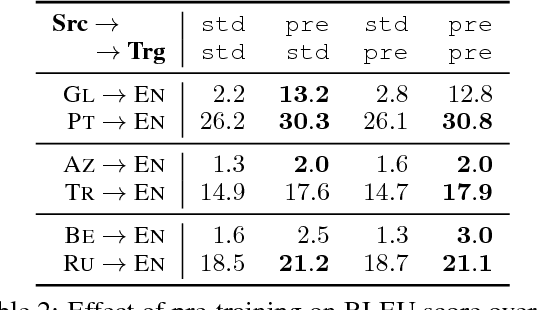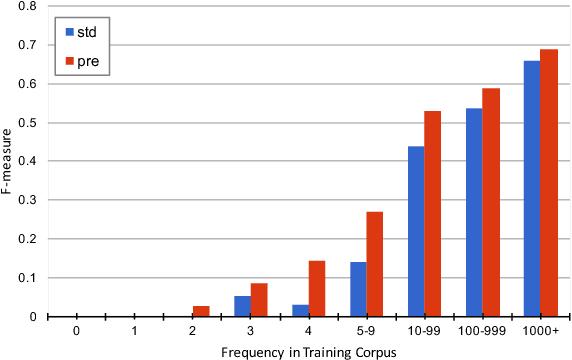When and Why are Pre-trained Word Embeddings Useful for Neural Machine Translation?
Paper and Code
Apr 18, 2018



The performance of Neural Machine Translation (NMT) systems often suffers in low-resource scenarios where sufficiently large-scale parallel corpora cannot be obtained. Pre-trained word embeddings have proven to be invaluable for improving performance in natural language analysis tasks, which often suffer from paucity of data. However, their utility for NMT has not been extensively explored. In this work, we perform five sets of experiments that analyze when we can expect pre-trained word embeddings to help in NMT tasks. We show that such embeddings can be surprisingly effective in some cases -- providing gains of up to 20 BLEU points in the most favorable setting.
* NAACL 2018
 Add to Chrome
Add to Chrome Add to Firefox
Add to Firefox Add to Edge
Add to Edge